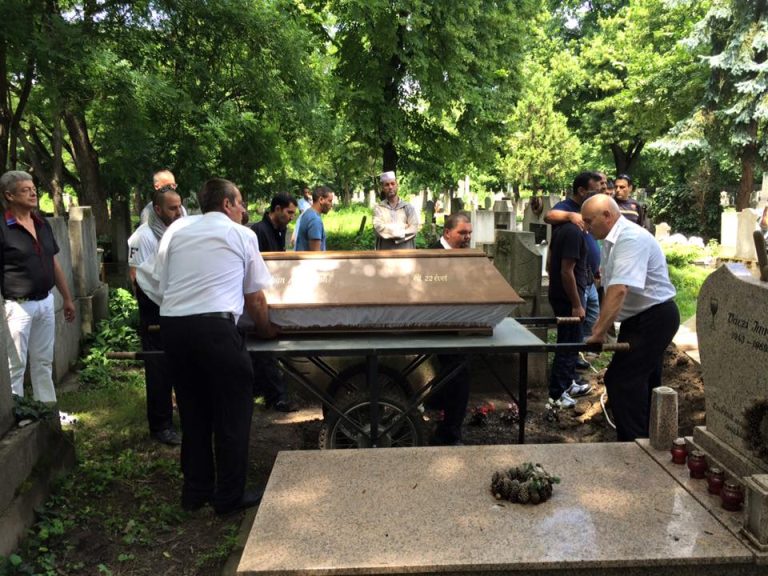European Court of Human Rights: Hungary is responsible for the death of a 22-year-old Syrian refugee
Hungarian authorities are responsible for the death of a young Syrian man who drowned in the river Tisza at the Serbian-Hungarian border after police assaulted and pushed him back in 2016, the European Court of Human Rights (ECtHR) ruled today.
Translation is available for this content
Váltás magyarra
On 1 June 2016, a 22-year-old Syrian man died as a result of a violent push-back carried out by Hungarian law enforcement agents. The man was trying to cross the river from Serbia into Hungary with his brother, cousin (and an Iraqi family with three children). When they reached the riverbank, police officers set dogs, shot tear gas, and threw stones at them. Then they forced them back into the river, shouting “Go back to Serbia!”. The man was injured and drowned in the Tisza. His brother and cousin made it back to the Serbian side. (The Iraqi family was rescued, and the mother and children were hospitalised for hypothermia.)
The Hungarian authorities failed to effectively investigate the tragedy. The man’s brother sued Hungary at the ECtHR for failing to protect the right to life, for the inhumane treatment his brother suffered, and for the failure to conduct an effective investigation. The Hungarian Helsinki Committee represented him, just like during the Hungarian procedure. The ECtHR delivered its judgment this morning. The Court ruled that the Hungarian authorities failed to do anything to protect the life of a man who was clearly in danger, failed to operate an adequate rescue system along a stretch of river that is known to be dangerous and where they knew that refugees often attempted to cross, and failed to do their best to rescue the man in distress in this particular case. The Court also found it breaching the Convention that the investigating authority did not do its job properly and failed to investigate the circumstances of the case regarding the death and the police assault. The Court also ruled that the question of whether our client and his brother had suffered inhuman or degrading treatment before his death could not be established beyond reasonable doubt precisely because the investigation carried out by the Hungarian authorities was inadequate. The ECtHR ordered Hungary to pay EUR 34,000 in damages to the victim’s brother.
This case of law enforcement brutality was far from unique: UNHCR documented more than 100 similar cases of violence against people trying to cross the border during the month before the fatal incident alone. Moreover, Hungary legalised pushbacks (which European courts consider severely violating human rights) only a month later, on 5 July 2016. This means that the police measure that resulted in the death of the young Syrian man was unlawful even according to the Hungarian legislation at the time of the tragic incident.
Every year, tens of thousands of refugees attempt to cross the Serbian-Hungarian border fence or the river, risking their lives. This remained the only available alternative for most of them – already back in 2016, only 15-17 people a day were allowed into the then-existing transit zones in Röszke and Tompa. The number of pushbacks by the Hungarian police has been increasing every year (for example in 2016, 8466 cases were recorded after 5 July, rising to more than 150,000 in 2022).
Since the Hungarian government introduced the so-called embassy system in 2020, entry to Hungary has become practically impossible for asylum-seekers from non-neighbouring war-torn countries. Since then, only those who have previously submitted a statement of intent to the Hungarian embassy in Belgrade or Kyiv and been approved can seek asylum in the country. Most of these people are rejected or are placed on a hopeless waiting list – ruling out any legal alternative to the life-threatening border crossing, which the Hungarian authorities have declared illegal.
Gábor Győző, the attorney of the Hungarian Helsinki Committee representing the surviving brother, commented: “I hope that the judgement will bring some satisfaction to the victim’s brother, but he will probably never forget the horrors he has experienced and the loss of his 22-year-old brother. It is incomprehensible why this young man, fleeing a civil war in his country, had to die instead of receiving help from the Hungarian police and army who, unfortunately, have put a cruel and inhumane border protection policy before protecting human life.”